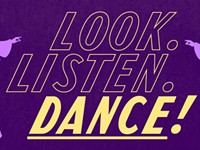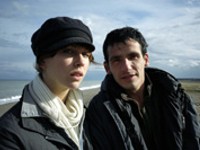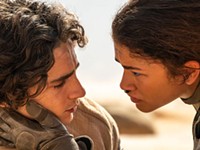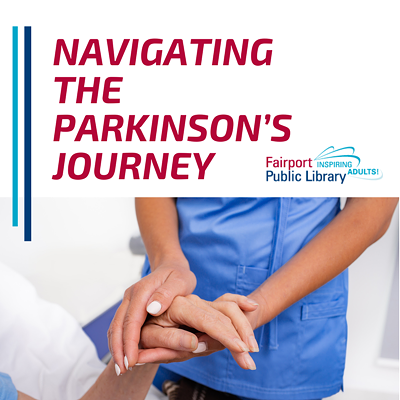[
{
"name": "500x250 Ad",
"insertPoint": "5",
"component": "15667920",
"parentWrapperClass": "",
"requiredCountToDisplay": "1"
}
]
Taking a scene and replaying it from different perspectives is, if not exactly common, not exactly new, either. Films from Rashomon to Pulp Fiction have employed the trick to mine both novelty and depth out of a single scene. But The Trilogy, a new set of films from French director (and mainly actor) Lucas Belvaux, expands the concept significantly.
It's kind of a less flip version of Tom Stoppard's brilliant Rosencrantz and Guildenstern Are Dead, in which the minor players of Hamlet are followed about between the few appearances in the story Shakespeare granted them.
So what does The Trilogy add to this minor tradition? Well, let's take the films one by one. They do have an order, sort of. Belvaux says it doesn't matter what order they are seen in, although they are meant to be seen close together (and, ostensibly, any one could be seen just by itself). They were released in France a week apart for a staggered but concurrent run, and they are being shown two times each at the Dryden this Friday through Sunday. Feel free to mix it up, especially if your schedule necessitates it. It's hard for me to imagine seeing them out of the order I did, but that's probably true however you see them.
The first is On the Run, which has duly been labeled by the marketing people as a thriller. The director himself stars as a bomb-throwing radical freshly sprung from prison with a short but serious to-do list. The tag thriller belies the plain-spoken style of the film, which, while not Bressonian, is not Get Carter or The Bourne Supremacy.
It's less about running than watching and waiting, and instead of the protagonist being an unstoppable revenge machine, he's a morally dubious anachronism whose careful plans are not enough. He may have a storage unit set up with all the necessary supplies, but he's also forced to wheedle aid out of a former cohort and find fortuitous aid in someone he himself rescues.
On its own, there is nothing too remarkable about On The Run, although it's a solid film, and the methodical attention to character and detail linger in the mind long afterward. But take a pair of minor characters from the film (part of the fun is guessing who it will be), give them their own movie, and the story expands. An Amazing Couple takes a while to unstick itself from the first film, which, while appropriate, is kind of strange, because it's a comedy.
A morbid, depressed sort of comedy, shot in the same cold, damp style of the thriller. Belvaux has not adjusted the style, visually or otherwise, and if I found this disconcerting at first, it probably has more to do with the expectations the film's marketing engenders.
At first, the scenario, while theoretically comic, is undercut by the leftover grim tone. But the film does eventually find its own style, which is less a wholly different one than a slight modification of the world that has already been established for us. (All three films, in fact, contain slight traces of the "genres" of the others, as if to underscore that all three perspectives add up to one thing, not three.) The comedy of misunderstandings begins to seem less out of place and flow more easily, and we lapse into their lives more and more like you would with a new best friend, slowly forgetting the last.
Since the last film, After Life, is billed as "a melodrama," I had a pretty good idea by that point who the characters would be. It not only concerns two characters who I found unlikable, it tells a story which (unlike the second film) you already know the basic outline of. I was none too eager to have the blanks filled in on a story I already found annoying.
After Life turns out to not only be the best film of the series, it encapsulates the revelations The Trilogy contains. When the three stories cross paths with each other, little mysteries are resolved, and you are forced to reexamine things that came before. But apart from one major surprise, twists and revelations are not the point.
The series provides the gentle illuminations that examinations of real lives would, enriching your perspective. The major twist of After Life is that I ended up not only liking the characters, I found their story to be the most engaging --- quite a cinematic feat.
I shudder to think that real people I dislike might become as sympathetic as these two if I were forced to spend time inside their lives. At one point in the second film, the protagonist sits in a café and notices another character. Unbeknownst to him, this is no stranger, but someone who is following him, trying to make his life difficult. How nice it would be, he thinks, to get to know him. We should all know each other better, he thinks, and smiles.
Speaking of...
-

Calendar preview: Look, listen, dance
Nov 19, 2020 -

Open (art) house
Sep 21, 2020 -
Eastman House holds community forum on restoration efforts
Jun 23, 2015 - More »
Latest in Movie Reviews
More by Andy Davis
-
Murder and mayhem equals quality --- who knew?
Sep 22, 2004 -

All the sex films are in Toronto
Sep 15, 2004 -

Sifting through the fake, looking for the real
Aug 18, 2004 - More »






